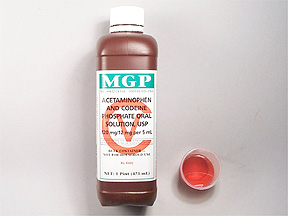Doctors are still giving children codeine after common childhood surgeries, even after warnings regarding the dangers of opioids.
Researchers say that one in 20 kids receives codeine for tonsillectomies and adenoidectomies, Reuters reports. A team examined records for close to 363,000 kids who had either of the two surgeries from 2010 to 2015. The US Food and Drug Administration gave a black box warning against using codeine in children because of the high risk of overdoses causing deaths.
After the FDA warning was issued, codeine prescriptions for the two surgeries declined significantly, by around 13%. But by the end of 2015, close to three years after the warning, some 5% of children are still getting codeine prescriptions after the said procedures.
Dr. Kao-Ping Chua, pediatrician at University of Michigan C.S. Mott Children’s Hospital and lead author on the study, said,
This is an unacceptable gamble given that there are better alternatives.
Chua said that most children don’t feel extreme pain after these surgeries and can go with medicines such as ibuprofen or acetaminophen. For those who need something stronger, there are alternatives like oxycodone and hydrocodone.
“Codeine prescribing in children for any reason should be a zero event,” Chua said.
The American Academy of Pediatrics recommended last year that codeine not be used for children.
Codeine used to be a common painkiller prescribed for children, as it was thought to be safer than opioids with higher potency such as hydrocodone and oxycodone, according to the researchers.
However, the FDA received reports of 13 children who had died or overdosed on codeine from 1969 to 2012. Many of the overdoses occurred among kids who had genetic differences that allowed their systems to convert codeine into morphine in their livers quickly. This caused suppressed breathing and fatalities.
As of January 2010, though, codeine products made up 47% of prescriptions filled for the aforementioned surgeries. By the end of the study, codeine prescriptions had gone down to 9%.
The study was published in Pediatrics.
























